Bacterial Flora and Essential Oils Antibacterial Activity during Storage of Tuber indicum
-
摘要: 为揭示印度块菌(Tuber indicum)4 ℃贮藏期间的表面微生物变化规律,鉴定优势腐败细菌并选择出抑菌效果好的天然抑菌剂。本文利用高通量测序与传统培养技术,对印度块菌贮藏过程中表面菌群结构及优势腐败菌进行研究。通过测定抑菌率,计算半数有效浓度(EC50)等,研究5种天然植物精油对优势腐败菌的抑制效果。结果表明,贮藏期间印度块菌表面菌落总数呈增加趋势,第15 d时达到2.28×106 lg CFU/g并出现异味、发粘或发霉等现象,至30 d时到达货架期终点。贮藏期间的优势菌门为Proteobacteria、Bacteroidetes、Actinobacteria、Firmicutes和Verrucomicrobia。优势菌属为Pseudomonas、Rhizobium、Pedobacter、Sphingobacterium、Flavobacterium、Serratia、Janthinobacterium、Sphingopyxis和Variovorax。此次共分离得到2株可导致块菌腐烂率达90%以上的细菌,经鉴定分别为枯草芽孢杆菌(Bacillus subtilis)和粪小短杆菌(Brachybacterium faecium)。所用5种精油中,柠檬草精油对B. subtilis的抑菌效果最好,EC50值为5.471 μL/L;百里香精油对B. faecium的抑菌效果最好,EC50值为6.350 μL/L。本研究为后续开展柠檬草和百里香精油复配在块菌采后贮藏保鲜上的应用,延长其货架期提供了一定理论依据。Abstract: In order to reveal the surface microbial changes of Tuber indicum during storage at 4 ℃, identify the dominant spoilage bacteria and select the natural antibacterial agent with good antibacterial effect. In this paper, high-throughput sequencing and traditional culture technology were used to study the surface flora structure and dominant spoilage bacteria of T. indicum during storage. Five natural plant essential oils were selected to study their inhibitory effects on dominant spoilage bacteria by measuring inhibitory rate and calculating their EC50 value. The results showed that the total number of colonies on the T. indicum surface was gradually increasing during storage, and reached 2.28×106 CFU/g on the 15th day which appeared odorous, sticky or moldy phenomena. Then reached the end of shelf life on the 30th day. Proteobacteria, Bacteroidetes, Actinobacteria, Firmicutes and Verrucomicrobia were the dominant phyla during storage. Pseudomonas、Rhizobium、Pedobacter、Sphingobacterium、Flavobacterium、Serratia、Janthinobacterium、Sphingopyxis and Variovorax were the dominant genera. Two strains of bacteria were isolated which could cause truffle decay rate of more than 90%, and identified as Bacillus subtilis and Brachybacterium faecium. Among the 5 essential oils, lemon grass essential oil had the best antibacterial effect on B. subtilis and the EC50 value was 5.471 μL/L, thyme essential oil had the best antibacterial effect on B. faecium and the EC50 value was 6.350 μL/L. It provides a theoretical basis for the further compound application of lemon grass and thyme essential oil in the postharvest storage and prolong shelf life of truffles.
-
块菌(truffle)商业贸易中被称为松露、猪拱菌、无娘果等,享有“厨房里的黑钻石”和“上帝的食物”之美誉,是一类与树木共生的地下真菌。在分类上隶属于真菌界(Eumycetes)、子囊菌亚门(Ascomycotina)、块菌目(Tuberales)、块菌科(Tuberaceae)、块菌属(Tuber)[1]。由于资源稀缺,食药用价值高,块菌已成为当今世界食用菌市场上价格最昂贵的菌类之一,在国际国内市场上供不应求[2−4]。研究显示,块菌子实体中含有丰富的蛋白质、氨基酸、碳水化合物等营养物质和芳香成分,并具有抗氧化、抗微生物等药用价值[5]。
作为国产特色野生名贵食用菌,块菌在国内的售价可达300~500元/斤,出口可达500~1000欧元/斤,已是我国西南地区农民增收的重要物质资源。但是,块菌采后贮运销的过程中经常出现腐烂,降低其在贮运销过程中的品质和价值。在国外,针对黑孢块菌(T. melanosporum)、白块菌(T. magnatum)、波氏块菌(T. borchii)和夏块菌(T. aestivum)的采后贮运,已经开展了保鲜剂保鲜、薄膜保鲜、低温冷冻保鲜、气调包装保鲜、辐照保鲜、冷冻干燥、热风干燥和罐装等方面的研究[6−8];在国内,块菌采后品质变化及控制技术的系统研究相对较少,仅有部分学者针对采后印度块菌(T. indicum)开展了保鲜剂保鲜、超声波技术保鲜、低温保鲜、冷库保鲜、食用酒精速泡保鲜等方面的研究,用于降低腐烂率和延长保质期[9−11]。其中,应用最为广泛的方法仍是低温冷藏。但是,已有研究中却鲜有针对块菌采后低温贮藏过程中优势致腐菌的分离鉴定及控制措施的研究报道。在缺乏有效保护措施的前提下,块菌极易受到特定腐败菌的侵染而发生软化变质,散发强烈的异臭味。同时,腐败菌还可能代谢产生毒素物质等,给食品安全带来风险。
目前,食品中腐败微生物的研究方法主要有传统培养法和高通量测序技术。前者已广泛应用于食品中优势腐败菌的鉴定,但因可培养的条件有限,且部分微生物对环境要求苛刻难于培养,分析结果不能完全反映样品中微生物群落情况,尤其是挑选单菌落时易受主观因素影响,导致腐败菌遗漏。后者具有信息量大、效率高的优点,还能检测出对环境要求苛刻及低丰度的微生物,可有效弥补传统培养法在鉴定上的不足[12−14]。因此,本研究将两种方法共同应用于研究4 ℃贮藏期间块菌表面的菌群结构变化,并通过传统纯培养技术对优势腐败菌进行鉴定。在此基础上,探究柠檬草、百里香、丁香、薄荷和肉桂精油等对优势腐败菌的抑菌效果,以期为块菌贮藏保鲜过程中致腐菌的绿色防控提供理论依据,为贮藏流通环节的减损保质奠定一定基础。总之,致腐菌是影响果蔬采后产业链健康发展的关键因素之一。有效控制其发生对保持块菌品质、降低毒素污染风险、延长贮藏期和加工时间具有重要意义,可显著降低其采后经济损失[15]。
1. 材料与方法
1.1 材料与仪器
新鲜印度块菌 购自凉山州会东县;柠檬草、百里香、丁香、薄荷和肉桂精油(浓度大于99%) 广州芳利医药科技有限公司;营养琼脂(NA)培养基、结晶紫液、碘液和番红复染液等 均由西昌迪安实业公司提供;2×HieffTM PCR Master Mix 上海翊圣生物科技有限公司;E.Z.N.ATM Mag-Bind Soil DNA Kit试剂盒 OMEGA;Qubit3.0 DNA检测试剂盒 Life。
SW-CJ-2FD洁净工作台 苏州安泰空气技术有限公司;B204LED生物显微镜 重庆奥特光学仪器有限责任公司;LDZM-40L立式高压蒸汽灭菌器 上海市申安医疗器械厂;UP-PY-S250(E)生化培养箱 四川优浦超纯科技有限公司;GL-88B漩涡混合器 海门市其林贝尔仪器制造有限公司;移液器(范围100~1000 mL,20~200 mL,0.5~10 mL)、PCR反应扩增仪 加拿大 BBI公司;3730测序列分析仪 美国ABI公司;SC850凝胶成像系统 上海山富科学仪器有限公司。
1.2 实验方法
1.2.1 样品处理
挑选成熟度一致、无机械损伤、无病虫害、大小基本相同的新鲜块菌,洗去泥沙后用无菌蒸馏水洗净晾干,采用市售聚乙烯(PE)包装袋(厚度0.006 mm)进行包装,记为第0 d。每袋装块菌样品(500±10)g,共12袋,放置于4 ℃条件下贮藏。分别于第 0、5、10、15、20、25和30 d 取样作为研究对象,并设置3次重复实验。
1.2.2 测定指标与方法
1.2.2.1 菌落总数的测定
参照GB 4789.2-2022《食品安全国家标准 食品微生物检验 菌落总数测定》进行测定[16]。称取块菌样品25 g,加入225 mL无菌生理盐水,将其均质混匀后,取混合液进行10倍梯度稀释,稀释至一定梯度后,取1 mL合适的稀释液涂布于NA固体培养基上,37 ℃培养48 h后计数,以每克样品中菌落形成单位的对数lg CFU/g表示。
1.2.2.2 块菌表面细菌多样性分析
将25 g块菌样品放入含有少量无菌水的均质袋中,轻轻振摇5 min,离心收集菌体,在干冰条件下运送至生工生物工程(上海)股份有限公司,提取总DNA。利用通用引物341F(5′-CCTACGGGNGGCWGCAG-3′)和805R(5′-GACTACHV GGGTATCTAATCC-3′)进行16S rDNA V3-V4区的PCR扩增并测序。第一轮扩增:扩增体系:Master Mix 15 μL,Bar-PCR primer F 1 μL,Primer R 1 μL,PCR产物10~20 ng,加H2O 9~12 μL。反应条件:94 ℃ 3 min,94 ℃ 30 s,45 ℃ 20 s,65 ℃ 30 s,5个循环;94 ℃ 20 s,55 ℃ 20 s,72 ℃ 30 s,20个循环;72 ℃ 5 min,10 ℃保存。第二轮扩增:引入Illumina桥式PCR兼容引物,扩增体系:Master Mix 15 μL,Primer F 1 μL,Primer R 1 μL,PCR产物(上一轮)20~30 ng,加H2O 9~12 μL。反应条件:95 ℃ 3 min;94 ℃ 20 s,55 ℃ 20 s,72 ℃延伸30 s,5个循环;72 ℃ 5 min,10 ℃保存。
1.2.2.3 致腐细菌分离及返接验证试验
块菌腐烂后菌体表面呈现发粘、发霉、质地变软等现象,并散发臭气。实验中称取完全腐烂的块菌样品25 g置于225 mL无菌生理盐水中,振荡20 min,取1 mL制备6个梯度(10−1~10−6)的样品稀释液,分别涂布于NA固体培养基上,每个梯度做3个重复,于37 ℃ 培养1~3 d[17]。挑取不同形态的单菌落平板划线纯化3~5次后,编号保存相应菌株进行后续研究。
参考柯赫氏法则,通过回接块菌验证所分离菌株的致腐能力[18]。选取无病害、无损伤的块菌样品进行75%酒精表面消毒。将上述编号保存的菌株分别制成菌液(107个/mL)后,浸泡块菌样品(每组50个)30 s,再用滤纸吸干水分,以无菌水处理为对照,做3个重复,每天观察样品腐败情况。选取致腐率>90%的优势菌株进行后续试验。致腐率(%)=腐败块菌样品个数/50×100。
1.2.2.4 致腐细菌鉴定
在NA固体培养基上观察优势致腐菌的菌落形态,并经革兰氏染色液染色后于显微镜下鉴定。将菌体送至生工生物工程(上海)股份有限公司,采用细菌通用引物27F(5′-AGAGTTTGATCCTGGCTCAG-3′)和1492R(5′-GGTTACCTTGTTACGACTT-3′)进行16S rDNA的扩增、测序及序列拼接后,通过NCBI网站(https://www.ncbi.nlm.nih.gov/)BLAST在线进行核酸序列的同源性比对,利用MEGA 7.0构建系统发育树,以确定致腐菌的生物学分类地位。扩增体系:20.0 μL,其中Master Mix 10 μL、正反向引物各1.0 μL、DNA模板1.0 μL、去离子水7.0 μL;反应条件:95 ℃ 4 min;94 ℃ 20 s;55 ℃ 20 s;72 ℃ 1 min ;35个循环;72 ℃延伸10 min。4 ℃保存。
1.2.2.5 精油抑菌研究
选择直径9 cm的培养皿,灭菌后待用。在培养皿内倒入20 mL灭菌后的NA固体培养基,待凝固后,吸取100 μL浓度为106个/mL 的优势菌株菌悬液均匀涂布于培养基上。采用纸片扩散法测定精油抑菌效果。在无菌条件下,将0.7、1.4、2.8、4.2、5.6和7.0 μL的精油滴加在无菌滤纸片(直径10 mm)上,使皿内精油浓度分别为10、20、40、60、80和100 μL/L[19]。以无菌水为对照,每个处理3个重复。培养1~3 d后,测定各个菌落的直径。计算各精油的抑菌率(%),以浓度对数值及对应的抑菌率概率值作回归分析,计算各精油的半数有效浓度(EC50)、EC50 95%置信区间和相关系数。EC50值越小,表示精油的抑菌能力越强。
1.3 数据处理
利用SPSS 26.0软件对实验结果进行分析,P<0.05表示差异显著。
2. 结果与分析
2.1 贮藏期间块菌表面菌落总数变化分析结果
采后块菌的生命活动还在延续,其表面微生物的活动会影响贮藏效果。其中,菌落总数是用来评价食品安全性和货架期的重要指标之一[20]。由图1可知,块菌在4 ℃条件下贮藏期间,菌落总数呈增加趋势。第0 d时块菌表面菌落总数为4.15×105 lg CFU/g,第15 d时为2.28×106 lg CFU/g。贮藏第15~30 d期间,菌体表面菌落总数变化较为平稳,可能是因为4 ℃能较好地抑制微生物的活性,减缓微生物的繁殖速度[21]。通常蔬菜等经过清洗、包装处理后,组织和细胞结构会受到一定破坏,导致其抵御微生物侵染的能力下降,菌落总数不应超过106 lg CFU/g[22]。因此,贮藏至第15 d是块菌开始腐败的关键点。实验过程中,块菌菌体自第15 d时已经出现异味、发粘或发霉等现象,之后逐渐失去商品价值,贮藏至30 d时,到达货架期终点。
2.2 贮藏期间块菌表面细菌多样性变化分析结果
利用高通量测序分析块菌贮藏期间的细菌菌相结构。如表1所示,各样本的Coverage 指数数值均为1.00,说明测序的覆盖率较高,测序结果真实有效。Shannon、Chao、Ace和 Simpson等均是用于估算样本中微生物多样性的指数。Simpson值越大,群落多样性越低;Shannon值越大,群落多样性越高,Chao和Ace值越大,微生物群落的丰度越高[13]。
表 1 样品的多样性指数Table 1. Diversity index of samples取样时间(d) 序列数 OTUs数目 Shannon指数 Chao
指数Ace
指数Simpson指数 Shannoneven 指数 Coverage指数 0 38448 293 2.80 361.50 377.08 0.09 0.49 1.00 5 36580 330 2.42 353.17 374.12 0.17 0.46 1.00 10 35832 276 2.48 367.28 377.32 0.19 0.40 1.00 15 35882 313 2.58 382.81 396.01 0.11 0.45 1.00 20 33072 267 2.54 342.90 332.68 0.09 0.48 1.00 25 37170 282 2.60 343.61 362.71 0.11 0.51 1.00 30 34316 262 2.81 331.39 361.83 0.12 0.53 1.00 针对贮藏期间块菌表面的细菌多样性进行初步分析。根据Chao指数和Ace指数结果显示,贮藏前15 d的块菌样品细菌多样性比贮藏后期更丰富。在整个贮藏期间共有21个门的细菌存在。由图2可知,优势细菌门分别是:第一丰度的变形菌门(Proteobacteria),是一类包括大肠杆菌、沙门氏菌等致病菌的细菌门。其次是拟杆菌门(Bacteroidetes)、放线菌门(Actinobacteria)、厚壁菌门(Firmicutes)和疣微菌门(Verrucomicrobia),这和其他研究结果基本一致[9,23]。此外,随着贮藏时间的延长,变形菌门的丰度呈增加趋势,意味着块菌表面致病菌的丰度也存在增加的可能[24]。
在不同贮藏时期,块菌表面的微生物在属的分类水平下共得到 226个属。由图3可以看出,相对丰度大于1%的属中,假单胞菌属(Pseudomonas)最多,但随着贮藏时间的延长其丰度呈先上升后下降趋势。此外,块菌表面微生物主要还有根瘤菌属(Rhizobium)、土地杆菌属(Pedobacter)、鞘氨醇杆菌属(Sphingobacterium)、黄杆菌属(Flavobacterium)、沙雷氏菌属(Serratia)、紫色杆菌属(Janthinobacterium)、鞘脂单胞菌属(Sphingopyxis)和贪噬菌属(Variovorax)等。随着贮藏时间的延长,上述9 种菌属共占据物种丰度从贮藏初期的71.65%上升至贮藏第15 d的98.88%,之后下降至75.72%,可能是特定腐败菌的生长繁殖会抑制其他微生物菌群生长所致[14]。其中,假单胞菌属是革兰氏染色呈阴性的无芽胞杆菌,专性需氧,有鞭毛,能运动,不发酵糖类,通常最适生长温度为30 ℃左右[25]。但在低温条件下也能生长,分泌果胶酶,降解果胶,从而破坏细胞组织,危害冷藏的块菌[26]。土地杆菌属能水解蛋白质,可能与块菌的腐败有关[27];鞘氨醇杆菌属是广泛存在于环境中的一种条件致病菌[28];黄杆菌属是典型冷链温度下的主要腐败菌[29];沙雷氏菌属是肠杆菌科中比较典型的腐败菌[30];紫色杆菌属常见于土壤和水里的有机体,可引起食物腐败[31]。
2.3 致腐细菌分离及回接验证试验结果
块菌腐变最初的症状出现在组织的夹缝部位。受到感染后,先呈现细微的臭味,相继出现变软和少许黏液;后期臭味严重,黏液延伸到整个块菌组织。从腐烂的块菌表面共分离纯化出6株细菌菌株,分别标记为XJ-1~6。如图4所示,在反接试验中,仅菌株XJ-5和XJ-6可诱导块菌腐败,并能从腐败菌体上再次分离到相应的菌株。其中,XJ-5的致腐率达到92%,XJ-6的致腐率达到94%,均为优势菌株。对照组的致腐率仅为2%,其余菌株致腐率均小于50%。
2.4 致腐细菌的鉴定
2.4.1 形态学鉴定
如图5所示,在NA固体培养基上菌株XJ-5的菌落呈白色或微黄色,表面干燥,多凸起和褶皱,边缘呈裂叶状。革兰氏染色后呈阳性,中间有芽孢结构,呈分散排列。推测该菌可能为芽孢杆菌属(Bacillus sp.)细菌。
如图6所示,在NA固体培养基上菌株XJ-6的菌落呈白色,圆形,表面光滑,边缘整齐。革兰氏染色后呈阳性,无鞭毛,呈明显短杆状特征。推测该菌可能为短状杆菌属(Brachybacterium sp.)细菌。
2.4.2 细菌16S rRNA分子生物学鉴定
将菌株XJ-5和XJ-6的菌体送公司测序,通过BLAST比对后构建2株细菌的系统进化树。如图7所示,XJ-5鉴定结果为枯草芽孢杆菌(Bacillus subtilis),XJ-6鉴定结果为粪小短杆菌(Brachybacterium faecium)。
2.5 不同精油对优势致腐细菌的抑菌研究
2.5.1 不同精油对菌株XJ-5(Bacillus subtilis)的抑菌结果
如表2所示,当精油浓度为40 μL/L时,百里香精油>柠檬草精油的抑菌效果且对XJ-5的抑菌率可达到85%以上,但二者差异不显著;当精油浓度为60 μL/L时,百里香和柠檬草精油对XJ-5的抑菌率可达到100%。当精油浓度为100 μL/L时,薄荷精油>丁香精油>肉桂精油的抑菌效果,但抑菌率均<50%。
表 2 不同植物精油对XJ-5的抑制效果(%)Table 2. Inhibitory effect of different plant essential oils on XJ-5 (%)精油浓度
(μL/L)百里香 柠檬草 薄荷 丁香 肉桂 10 68.07±1.84a 35.54±3.65b 27.58±2.08c 24.15±1.32c 5.80±0.51d 20 78.95±4.67a 59.83±2.73b 31.98±3.90c 26.38±1.56c 7.64±0.95d 40 89.56±6.28a 87.63±4.56a 36.05±1.61b 27.73±2.39b 9.15±1.53c 60 100a 100a 40.73±2.04b 30.89±2.98c 10.96±0.37d 80 100a 100a 45.69±2.34b 34.73±4.60c 11.52±2.10d 100 100a 100a 49.61±2.50b 37.96±4.47c 12.07±1.43d 注:同一行抑菌率数字后的不同字母表示 Duncan’s分析差异显著(P<0.05);表4同。 如表3所示,在所选5种植物精油中,肉桂精油对XJ-5的抑制效果最差,EC50值是333.269 μL/L。柠檬草精油对XJ-5的抑制效果最好,EC50值是5.471 μL/L;其次为百里香精油,EC50值是5.765 μL/L。此外,薄荷和丁香精油的EC50值分别是102.803和182.444 μL/L。
表 3 不同植物精油对XJ-5的EC50值Table 3. EC50 of different plant essential oils on XJ-5精油 回归方程 决定系数R2 EC50
(μL/L)EC50 95%
置信区间薄荷 y=−4.032+2.004x 0.980 102.803 73.726~236.792 丁香 y=−1.208+0.534x 0.971 182.444 97.612~394.019 柠檬草 y=−1.277+1.928x 0.948 5.471 4.076~9.293 百里香 y=−0.764+1.170x 0.990 5.765 4.418~7.734 肉桂 y=−2.497+0.990x 0.978 333.269 115.872~3978 2.5.2 不同精油对菌株XJ-6(Brachybacterium faecium)的抑菌结果
如表4所示,当精油浓度为40 μL/L时,百里香精油>柠檬草精油>丁香精油>肉桂精油>薄荷精油的抑菌效果。其中,百里香和柠檬草精油的抑菌率均>90%,且差异显著(P<0.05);丁香和肉桂精油的抑菌率均>80%,但差异不显著。而薄荷精油对XJ-6的抑菌率<80%。当精油浓度为80 μL/L时,5种精油均可实现对XJ-6的完全抑制。
表 4 不同植物精油对XJ-6的抑制效果(%)Table 4. Inhibitory effect of different plant essential oils on XJ-6 (%)精油浓度
(μL/L)百里香 柠檬草 薄荷 丁香 肉桂 10 68.35±5.69a 34.30±3.31cd 41.85±2.55c 53.95±2.17b 31.65±0.86d 20 82.52±3.25a 64.44±4.98bc 56.30±3.14cd 70.69±3.85b 51.74±5.05d 40 96.63±4.77a 93.54±4.65bc 72.16±1.46d 82.56±4.92cd 82.11±2.68cd 60 100a 100a 89.56±3.27b 100a 100a 80 100a 100a 100a 100a 100a 100 100a 100a 100a 100a 100a 如表5所示,在所选5种植物精油中,薄荷精油对XJ-6的抑制效果最差,EC50值是25.119 μL/L。百里香精油对XJ-6的抑制效果最好,EC50值是6.350 μL/L;其次为柠檬草精油,EC50值是6.687 μL/L。此外,肉桂和丁香精油的EC50值分别是8.347和8.796 μL/L。
表 5 不同植物精油对XJ-6的EC50值Table 5. EC50 of different plant essential oils on XJ-6精油 回归方程 决定
系数R2EC50
(μL/L)EC50 95%
置信区间薄荷 y=−2.898+2.070x 0.981 25.119 19.011~29.937 丁香 y=−1.068+1.131x 0.969 8.796 0.3631~16.250 柠檬草 y=−1.254+1.831x 0.970 6.687 4.637~41.3480 百里香 y=−1.317+1.640x 0.993 6.350 3.697~13.260 肉桂 y=−0.853+0.926x 0.960 8.347 5.637~97.895 3. 讨论与结论
本文采用传统培养基法和高通量测序技术,研究贮藏过程中块菌表面菌落结构变化。结果显示,随着贮藏时间延长,块菌表面菌落总数不断增加,贮藏至第15 d为块菌开始腐败的关键点,并开始出现异味、发粘或发霉等现象,之后菌体表面菌落总数变化较为平稳,贮藏至30 d时到达货架期终点。
从高通量测序结果发现,在贮藏期间,相对丰度大于1%的菌属主要有假单胞菌属、根瘤菌属、土地杆菌属、鞘氨醇杆菌属、黄杆菌属、沙雷氏菌属、紫色杆菌属、鞘脂单胞菌属和贪噬菌属等。随着贮藏时间的延长,假单胞菌属、根瘤菌属、鞘氨醇杆菌属等的丰度呈现先上升后下降的趋势,而上述9种菌属共占据物种丰度也从贮藏初期的71.65%上升至中期(第15 d)的98.88%,之后下降至75.72%,可能是特定腐败菌的生长繁殖会抑制其他微生物菌群生长所致[14]。分离纯培养得到的6个菌株中,XJ-5和XJ-6可导致块菌发病率达到90%以上,经形态学和分子生物学鉴定,XJ-5为厚壁菌门、芽孢杆菌属的枯草芽孢杆菌(Bacillus subtilis),XJ-6为放线菌门、短状杆菌属的粪小短杆菌(Brachybacterium faecium)。其中,枯草杆菌及其芽孢是食品中常见的污染菌。芽孢不仅耐热而且耐压,难以被常规的食品杀菌工艺杀灭,进而容易导致食品产生腐败现象,甚至引起食源性疾病[32−33]。
因此,本研究探究了百里香、柠檬草、丁香、薄荷和肉桂精油对块菌贮藏期间致腐细菌的广谱抑菌效果,结果发现百里香和柠檬草精油对优势致腐菌XJ-5和XJ-6均具有较高的体外抑制效果。在后续工作中,可进一步探究上述2种精油的抑菌机制,开展精油稳定性和实际应用研究,这将对提高块菌采后贮藏、运输、销售期间的品质,降低损失率和延长货架期具有一定参考价值,同时可为块菌采后食品安全绿色控制技术的研发与应用奠定理论基础。
-
表 1 样品的多样性指数
Table 1 Diversity index of samples
取样时间(d) 序列数 OTUs数目 Shannon指数 Chao
指数Ace
指数Simpson指数 Shannoneven 指数 Coverage指数 0 38448 293 2.80 361.50 377.08 0.09 0.49 1.00 5 36580 330 2.42 353.17 374.12 0.17 0.46 1.00 10 35832 276 2.48 367.28 377.32 0.19 0.40 1.00 15 35882 313 2.58 382.81 396.01 0.11 0.45 1.00 20 33072 267 2.54 342.90 332.68 0.09 0.48 1.00 25 37170 282 2.60 343.61 362.71 0.11 0.51 1.00 30 34316 262 2.81 331.39 361.83 0.12 0.53 1.00 表 2 不同植物精油对XJ-5的抑制效果(%)
Table 2 Inhibitory effect of different plant essential oils on XJ-5 (%)
精油浓度
(μL/L)百里香 柠檬草 薄荷 丁香 肉桂 10 68.07±1.84a 35.54±3.65b 27.58±2.08c 24.15±1.32c 5.80±0.51d 20 78.95±4.67a 59.83±2.73b 31.98±3.90c 26.38±1.56c 7.64±0.95d 40 89.56±6.28a 87.63±4.56a 36.05±1.61b 27.73±2.39b 9.15±1.53c 60 100a 100a 40.73±2.04b 30.89±2.98c 10.96±0.37d 80 100a 100a 45.69±2.34b 34.73±4.60c 11.52±2.10d 100 100a 100a 49.61±2.50b 37.96±4.47c 12.07±1.43d 注:同一行抑菌率数字后的不同字母表示 Duncan’s分析差异显著(P<0.05);表4同。 表 3 不同植物精油对XJ-5的EC50值
Table 3 EC50 of different plant essential oils on XJ-5
精油 回归方程 决定系数R2 EC50
(μL/L)EC50 95%
置信区间薄荷 y=−4.032+2.004x 0.980 102.803 73.726~236.792 丁香 y=−1.208+0.534x 0.971 182.444 97.612~394.019 柠檬草 y=−1.277+1.928x 0.948 5.471 4.076~9.293 百里香 y=−0.764+1.170x 0.990 5.765 4.418~7.734 肉桂 y=−2.497+0.990x 0.978 333.269 115.872~3978 表 4 不同植物精油对XJ-6的抑制效果(%)
Table 4 Inhibitory effect of different plant essential oils on XJ-6 (%)
精油浓度
(μL/L)百里香 柠檬草 薄荷 丁香 肉桂 10 68.35±5.69a 34.30±3.31cd 41.85±2.55c 53.95±2.17b 31.65±0.86d 20 82.52±3.25a 64.44±4.98bc 56.30±3.14cd 70.69±3.85b 51.74±5.05d 40 96.63±4.77a 93.54±4.65bc 72.16±1.46d 82.56±4.92cd 82.11±2.68cd 60 100a 100a 89.56±3.27b 100a 100a 80 100a 100a 100a 100a 100a 100 100a 100a 100a 100a 100a 表 5 不同植物精油对XJ-6的EC50值
Table 5 EC50 of different plant essential oils on XJ-6
精油 回归方程 决定
系数R2EC50
(μL/L)EC50 95%
置信区间薄荷 y=−2.898+2.070x 0.981 25.119 19.011~29.937 丁香 y=−1.068+1.131x 0.969 8.796 0.3631~16.250 柠檬草 y=−1.254+1.831x 0.970 6.687 4.637~41.3480 百里香 y=−1.317+1.640x 0.993 6.350 3.697~13.260 肉桂 y=−0.853+0.926x 0.960 8.347 5.637~97.895 -
[1] 清源, 周洁, 尹胜, 等. 块菌天然复配保鲜剂的配方优化及货架期预测[J]. 食品与发酵工业,2020,46(1):191−196. [QING Y, ZHOU J, YIN S, et al. Formulation optimization and shelf life prediction of truffles with natural preservative[J]. Food and Fermentation Industries,2020,46(1):191−196.] QING Y, ZHOU J, YIN S, et al. Formulation optimization and shelf life prediction of truffles with natural preservative[J]. Food and Fermentation Industries, 2020, 46(1): 191−196.
[2] TORREGIANI E, LORIER S, SAGRATINI G, et al. Comparative analysis of the volatile profile of 20 commercial samples of truffles, truffle sauces, and truffle-flavored oils by using HS-SPME-GC-MS[J]. Food Analytical Methods,2017,10(6):1−13.
[3] WU Z, MEENU M, XU B. Nutritional value and antioxidant activity of Chinese black truffle (Tuber indicum) grown in different geographical regions in China[J]. LWT-Food Science and Technology,2021,135:110226. doi: 10.1016/j.lwt.2020.110226
[4] LE TACON F, RUBINI A, MURAT C, et al. Certainties and uncertainties about the life cycle of the Périgord black truffle (Tuber melanosporum Vittad)[J]. Annals of Forest Science,2016,73(1):105−117. doi: 10.1007/s13595-015-0461-1
[5] 呼鑫荣, 熊海宽, 薛文通. 松露的组成成分及功能活性研究进展[J]. 食品工业科技,2017,38(22):348−352. [HU X R, XIONG H K, XUE W T. Research progress on the composition and functional activity of truffles[J]. Science and Technology of Food Industry,2017,38(22):348−352.] HU X R, XIONG H K, XUE W T. Research progress on the composition and functional activity of truffles[J]. Science and Technology of Food Industry, 2017, 38(22): 348−352.
[6] SAVINI S, LONGO E, SERVILI A, et al. Hypobaric packaging prolongs the shelf life of refrigerated black truffles (Tuber melanosporum)[J]. Molecules,2020,25(17):3837−3837. doi: 10.3390/molecules25173837
[7] TEJEDOR-CALVO E, D MORALES, S GARCÍA-BARREDA, et al. Effects of gamma irradiation on the shelf-life and bioactive compounds of Tuber aestivum truffles packaged in passive modified atmosphere[J]. International Journal of Food Microbiology,2020,332:108774. doi: 10.1016/j.ijfoodmicro.2020.108774
[8] KSOC A, MB B, JTR A, et al. Effect of chitosan and gum arabic with natamycin on the aroma profile and bacterial community of Australian grown black Périgord truffles (Tuber melansoporum) during storage[J]. Food Microbiology,2021(97):103743.
[9] MIAO Y, CHEN C, MA Q, et al. Effects of soaking with natural additives in combinations with vacuum or modified atmosphere packaging on microbial populations and shelf life of fresh truffles (Chinese Tuber indicum)[J]. Journal of Food Science,2015,79(10):2040−2047.
[10] 陈存坤, 李少华, 熊海宽, 等. 云南楚雄松露的采后贮藏保鲜品质研究初探[C]//第八届云南省科协学术年会论文集. 中国云南楚雄彝族自治州:云南省科学技术协会, 2018:212-222. [CHEN C K, LI S H, XIONG H K, et al. Preliminary study on the postharvest storage and freshness quality of Yunnan Chuxiong truffles[C]//Proceedings of the 8th Annual Academic Conference of Yunnan Association for Science and Technology. Chuxiong Yi Autonomous Prefecture, Yunnan, China:Yunnan Association for Science and Technology, 2018:212-222.] CHEN C K, LI S H, XIONG H K, et al. Preliminary study on the postharvest storage and freshness quality of Yunnan Chuxiong truffles[C]//Proceedings of the 8th Annual Academic Conference of Yunnan Association for Science and Technology. Chuxiong Yi Autonomous Prefecture, Yunnan, China: Yunnan Association for Science and Technology, 2018: 212-222.
[11] 黎琦, 邹璐潞, 马沁沁, 等. 酒精浸泡冷藏鲜印度块菌货架期评估、挥发性物质与细菌群落变化及其相关性[J]. 食品科学,2023,44(1):199−208. [LI Q, ZOU L L, MA Q Q, et al. Shelf lives evaluation, volatile compounds and bacterial communities change and their correlations of fresh Tuber indicum by alcohol soaking and cold storage[J]. Food Science,2023,44(1):199−208.] doi: 10.7506/spkx1002-6630-20220123-237 LI Q, ZOU L L, MA Q Q, et al. Shelf lives evaluation, volatile compounds and bacterial communities change and their correlations of fresh Tuber indicum by alcohol soaking and cold storage[J]. Food Science, 2023, 44(1): 199−208. doi: 10.7506/spkx1002-6630-20220123-237
[12] CAO R, ZHANG L, SUN H H, et al. Characterization of microbial community in high-pressure treated oysters by high-throughput sequencing technology[J]. Innovative Food Science & Emerging Technologies,2018,45:241−248.
[13] 丛筠格, 梁杉, 张敏. 基于传统培养和高通量测序分析德州扒鸡优势腐败菌及相关抑菌剂价效评定[J]. 食品工业科技,2022,43(17):149−157. [CONG Y G, LIANG S, ZHANG M. Analysis of dominant spoilage bacteria and the price effect evaluation of related antimicrobial agents in Dezhou-braised chicken based on traditional culture and high-throughput sequencing[J]. Science and Technology of Food Industry,2022,43(17):149−157.] CONG Y G, LIANG S, ZHANG M. Analysis of dominant spoilage bacteria and the price effect evaluation of related antimicrobial agents in Dezhou-braised chicken based on traditional culture and high-throughput sequencing[J]. Science and Technology of Food Industry, 2022, 43(17): 149−157.
[14] 江杨阳, 杨水兵, 余海霞, 等. 基于培养基法和高通量测序法分析冷藏小龙虾优势腐败菌[J]. 食品科学,2019,40(16):130−136. [JIANG Y Y, YANG S B, YU H X, et al. Analysis of specific spoilage organisms in chilled red swamp crayfish using culture- dependent method and high-throughput sequencing[J]. Food Science,2019,40(16):130−136.] doi: 10.7506/spkx1002-6630-20180718-229 JIANG Y Y, YANG S B, YU H X, et al. Analysis of specific spoilage organisms in chilled red swamp crayfish using culture- dependent method and high-throughput sequencing[J]. Food Science, 2019, 40(16): 130−136. doi: 10.7506/spkx1002-6630-20180718-229
[15] 王亚东. 果蔬产品采后呼吸作用与贮运保鲜研究[J]. 园艺与种苗,2022,42(2):58−59. [WANG Y D. Postharvest respiration and storage of fruit and vegetable products[J]. Horticulture & Seed,2022,42(2):58−59.] WANG Y D. Postharvest respiration and storage of fruit and vegetable products[J]. Horticulture & Seed, 2022, 42(2): 58−59.
[16] 中华人民共和国国家卫生和计划生育委员会. GB4789.2-2022 食品安全国家标准 食品微生物学检验 菌落总数测定[S]. 北京:中国标准出版社, 2022. [National Health and Family Planning Commission, People's Republic of China. GB4789.2-2022 National standards for food safety-microbiological detection of food-determination of total number of colonies[S]. Beijing:Standards Press of China, 2022.] National Health and Family Planning Commission, People's Republic of China. GB4789.2-2022 National standards for food safety-microbiological detection of food-determination of total number of colonies[S]. Beijing: Standards Press of China, 2022.
[17] 曾金兴, 黎忠杰, 佟硕秋, 等. 火龙果致腐菌的分离鉴定及生物拮抗防腐措施[J]. 微生物学通报,2021,48(6):2008−2020. [ZENG J X, LI Z J, TONG S Q, et al. Isolation and identification of pitaya spoilage fungi and the measures of biological antagonistic anticorrosion[J]. Microbiology China,2021,48(6):2008−2020.] ZENG J X, LI Z J, TONG S Q, et al. Isolation and identification of pitaya spoilage fungi and the measures of biological antagonistic anticorrosion[J]. Microbiology China, 2021, 48(6): 2008−2020.
[18] 罗冬兰, 雷霁卿, 曹森, 等. 火龙果采后病原菌的分离鉴定及丁香酚抑菌研究[J]. 中国果树,2022,226(8):23−27,2. [LUO D L, LEI J Q, CAO S, et al. Isolation and identification of postharvest pathogens of pitaya fruit and antifungal effect of eugenol[J]. China Fruits,2022,226(8):23−27,2.] LUO D L, LEI J Q, CAO S, et al. Isolation and identification of postharvest pathogens of pitaya fruit and antifungal effect of eugenol[J]. China Fruits, 2022, 226(8): 23−27,2.
[19] 姜莉莉, 孙守民, 宗晓娟, 等. 泰安市"香野"草莓采后主要病原菌的分离鉴定及精油抑菌效果评价[J]. 中国生物防治学报,2022,38(1):275−282. [JIANG L L, SUN S M, ZONG X J, et al. Isolation and identification of dominant pathogens of postharvest Kantoseika strawberry in Tai’an and evaluation of antifungal effects of essential oil[J]. Chinese Journal of Biological Control,2022,38(1):275−282.] JIANG L L, SUN S M, ZONG X J, et al. Isolation and identification of dominant pathogens of postharvest Kantoseika strawberry in Tai’an and evaluation of antifungal effects of essential oil[J]. Chinese Journal of Biological Control, 2022, 38(1): 275−282.
[20] RIVERA C S, BLANCO D, SALVADOR M L, et al. Shelf-life extension of fresh Tuber aestivum and Tuber melanosporum truffles by modified atmosphere packaging with microperforated films[J]. Food Engineering and Physical Properties,2010,75(4):225−233.
[21] 兰璞, 刘斌, 贾凝, 等. 贮藏温度对鲜切胡萝卜贮藏品质的影响[J]. 食品研究与开发,2020,41(24):168−172. [LAN P, LIU B, JIA N, et al. Effect of storage temperature on storage quality of fresh-cut carrots[J]. Food Research and Development,2020,41(24):168−172.] doi: 10.12161/j.issn.1005-6521.2020.24.028 LAN P, LIU B, JIA N, et al. Effect of storage temperature on storage quality of fresh-cut carrots[J]. Food Research and Development, 2020, 41(24): 168−172. doi: 10.12161/j.issn.1005-6521.2020.24.028
[22] 陈慧芝. 基于智能包装标签的典型生鲜配菜新鲜度无损检测的研究[D]. 无锡:江南大学, 2019. [CHEN H Z. Development of intelligent packaging labels for non-destructively monitoring freshness of typical prepared fresh foods[D]. Wuxi:Jiangnan University, 2019.] CHEN H Z. Development of intelligent packaging labels for non-destructively monitoring freshness of typical prepared fresh foods[D]. Wuxi: Jiangnan University, 2019.
[23] ELENA B, LUANA B, ISMAELA R, et al. New evidence for bacterial diversity in the ascoma of the ectomycorrhizal fungus Tuber borchii Vittad.[J]. Fems Microbiology Letters,2010(1):23−35.
[24] 任海伟, 冯银萍, 刘通, 等. 温度对干玉米秸秆与废弃白菜混贮发酵品质的影响和微生物菌群解析[J]. 应用与环境生物学报,2019,25(3):719−728. [REN H W, FENG Y P, LIU T, et al. Effects of temperature on the mixed storage fermentation quality of dry corn stalk and cabbage wastes and their microbial communities[J]. Chin J Appl Environ Biol,2019,25(3):719−728.] REN H W, FENG Y P, LIU T, et al. Effects of temperature on the mixed storage fermentation quality of dry corn stalk and cabbage wastes and their microbial communities[J]. Chin J Appl Environ Biol, 2019, 25(3): 719−728.
[25] 安花弘, 邓冰, 常明昌, 等. 双孢菇采后贮藏期间表面微生物菌群结构及优势腐败菌研究[J]. 食品科技,2020,45(12):23−30. [AN H H, DENG B, CHANG M C, et al. Study on surface microflora structure and dominant spoilage bacteria of Agaricus bisporus during post-harvest storage[J]. Food Science and Technology,2020,45(12):23−30.] AN H H, DENG B, CHANG M C, et al. Study on surface microflora structure and dominant spoilage bacteria of Agaricus bisporus during post-harvest storage[J]. Food Science and Technology, 2020, 45(12): 23−30.
[26] 廖敏, 陈希文, 姜立春, 等. 假单胞菌B41产果胶酶发酵条件的研究[J]. 中国酿造,2012,31(11):58−62. [LIAO M, CHEN X W, JIANG L C, et al. Optimization of Pseudomonas sp. B41 fermentation conditions for producing pectinase[J]. China Brewing,2012,31(11):58−62.] doi: 10.3969/j.issn.0254-5071.2012.11.015 LIAO M, CHEN X W, JIANG L C, et al. Optimization of Pseudomonas sp. B41 fermentation conditions for producing pectinase[J]. China Brewing, 2012, 31(11): 58−62. doi: 10.3969/j.issn.0254-5071.2012.11.015
[27] 施国驹, 李菊馨, 吴耿寰, 等. 生防细菌作用机理及其防治荔枝病害应用情况[J]. 农业研究与应用,2019,32(2):42−45. [SHI G J, LI J X, WU G H, et al. Mechanism of biocontrol bacteria and its application in control of litchi disease[J]. Agricultural Research and Application,2019,32(2):42−45.] SHI G J, LI J X, WU G H, et al. Mechanism of biocontrol bacteria and its application in control of litchi disease[J]. Agricultural Research and Application, 2019, 32(2): 42−45.
[28] 王琼英, 高巍, 赵梦然, 等. 市售食用菌鲜品外源细菌的动态变化分析[J]. 食品科学,2017,38(21):87−92. [WANG Q Y, GAO W, ZHAO M R, et al. Dynamic changes of exogenous bacteria in marketed fresh mushrooms[J]. Food Science,2017,38(21):87−92.] doi: 10.7506/spkx1002-6630-201721013 WANG Q Y, GAO W, ZHAO M R, et al. Dynamic changes of exogenous bacteria in marketed fresh mushrooms[J]. Food Science, 2017, 38(21): 87−92. doi: 10.7506/spkx1002-6630-201721013
[29] 申田宇. 鸡蛋贮藏期主要腐败菌的分离与鉴定[D]. 长沙:湖南农业大学, 2019. [SHEN T Y. Isolation and identification of main spoilage bacteria in eggs during storage[D]. Changsha:Hunan Agricultural University, 2019.] SHEN T Y. Isolation and identification of main spoilage bacteria in eggs during storage[D]. Changsha: Hunan Agricultural University, 2019.
[30] 申田宇, 陈力力, 刘焱, 等. 腐败变质鸡蛋内容物细菌群落多样性分析[J]. 激光生物学报,2020,29(2):168−175,18. [SHEN T Y, CHEN L L, LIU Y, et al. Analysis of bacterial community diversity of spoiled egg contents[J]. Acta Laser Biology Sinica,2020,29(2):168−175,18.] doi: 10.3969/j.issn.1007-7146.2020.02.011 SHEN T Y, CHEN L L, LIU Y, et al. Analysis of bacterial community diversity of spoiled egg contents[J]. Acta Laser Biology Sinica, 2020, 29(2): 168−175,18. doi: 10.3969/j.issn.1007-7146.2020.02.011
[31] 孟晓华, 段杉. 生鲜罗非鱼片在冷藏过程中细菌群落演替的PCR-DGGE分析[J]. 食品工业科技,2012,33(11):343−347. [MENG X H, DUAN S. PCR-DGGE analysis of bacterial community succession in fresh tilapia fillets during cold storage[J]. Science and Technology of Food Industry,2012,33(11):343−347.] MENG X H, DUAN S. PCR-DGGE analysis of bacterial community succession in fresh tilapia fillets during cold storage[J]. Science and Technology of Food Industry, 2012, 33(11): 343−347.
[32] 申瑾, 谭睿, 郭家俊, 等. 高压热杀菌灭活枯草杆菌芽孢的作用研究[J]. 中国食品学报,2022,22(6):142−152. [SHEN J, TAN R, GUO J J, et al. Studies on inactivation of HPTS on Bacillus subtilis spore[J]. Journal of Chinese Institute of Food Science and Technology,2022,22(6):142−152.] SHEN J, TAN R, GUO J J, et al. Studies on inactivation of HPTS on Bacillus subtilis spore[J]. Journal of Chinese Institute of Food Science and Technology, 2022, 22(6): 142−152.
[33] 尚彬玲, 申瑾, 陈翔, 等. HPTS结合Nisin对枯草杆菌芽孢的杀灭机理[J]. 食品与生物技术学报,2022,41(3):29−36. [SHANG B L, SHEN J, CHEN X, et al. Study on inactivation mechanism of Bacillus subtilis spores by HPTS combined with Nisin[J]. Journal of Food Science and Biotechnology,2022,41(3):29−36.] doi: 10.3969/j.issn.1673-1689.2022.03.004 SHANG B L, SHEN J, CHEN X, et al. Study on inactivation mechanism of Bacillus subtilis spores by HPTS combined with Nisin[J]. Journal of Food Science and Biotechnology, 2022, 41(3): 29−36. doi: 10.3969/j.issn.1673-1689.2022.03.004
-
期刊类型引用(1)
1. 代莹,刘双能,刘晋琦,邢莉那,朱童,周素梅,芦晶. 多重酶解协同制备绿豆基植物乳及其品质分析. 食品科技. 2024(09): 175-183 .  百度学术
百度学术
其他类型引用(0)





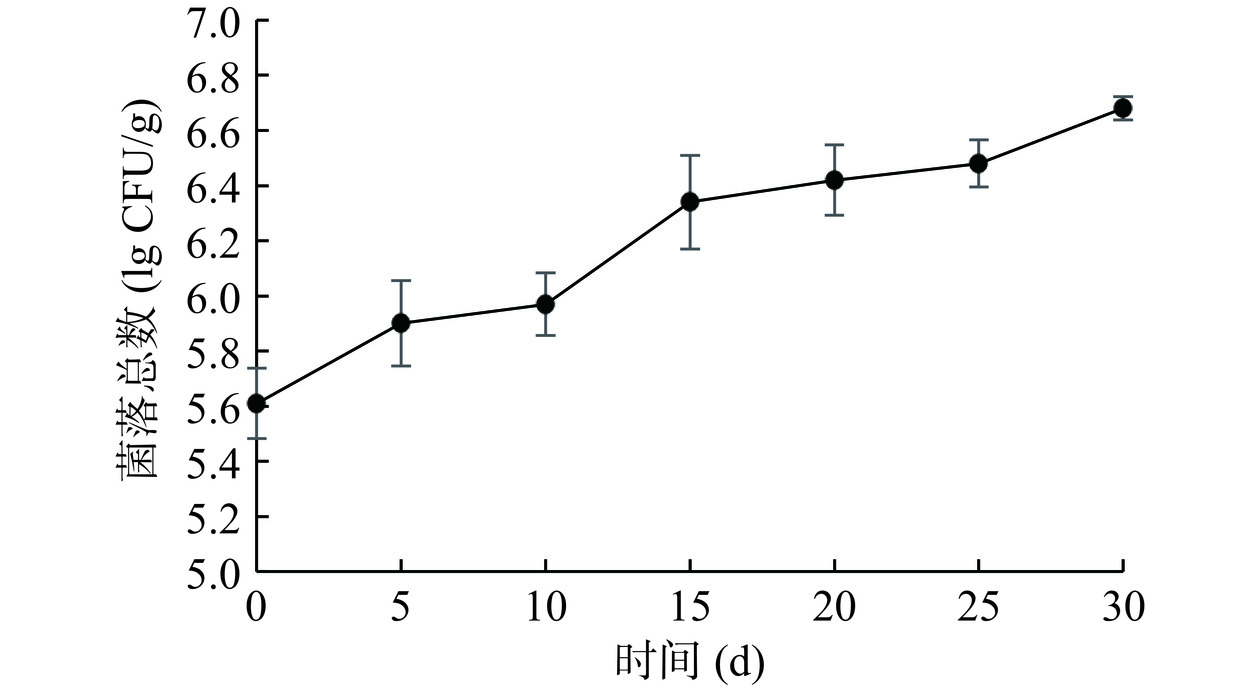
 下载:
下载:
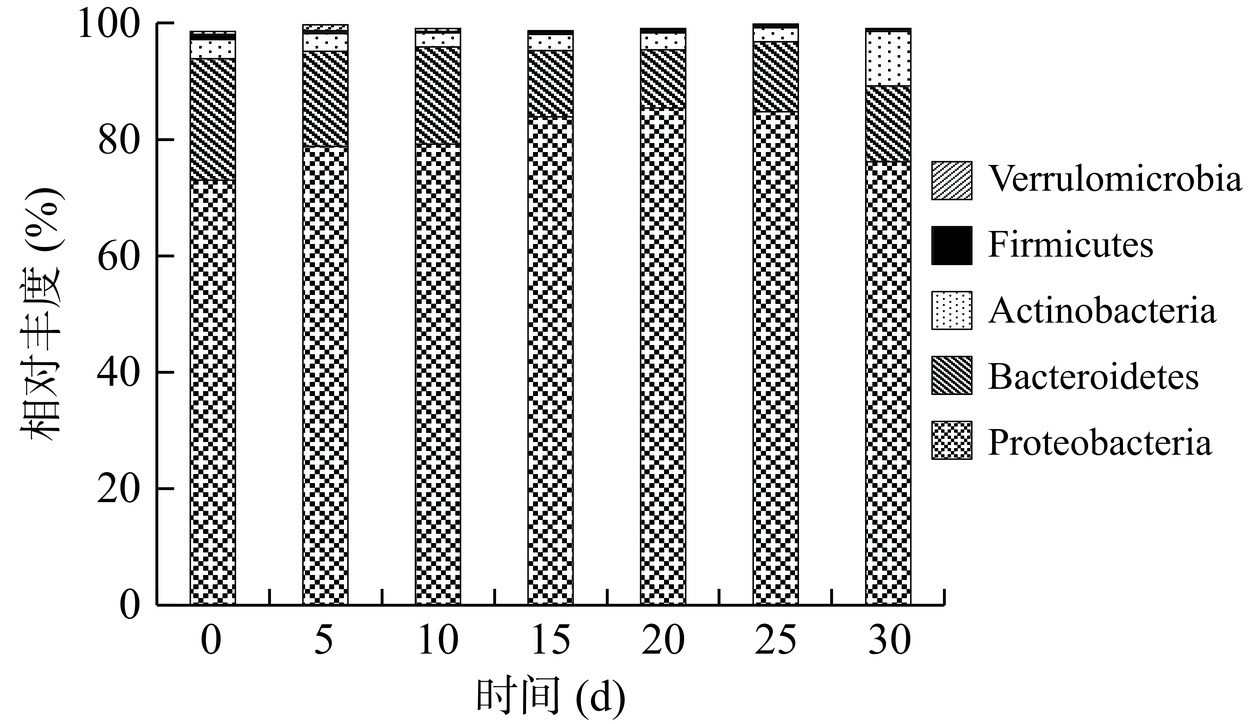
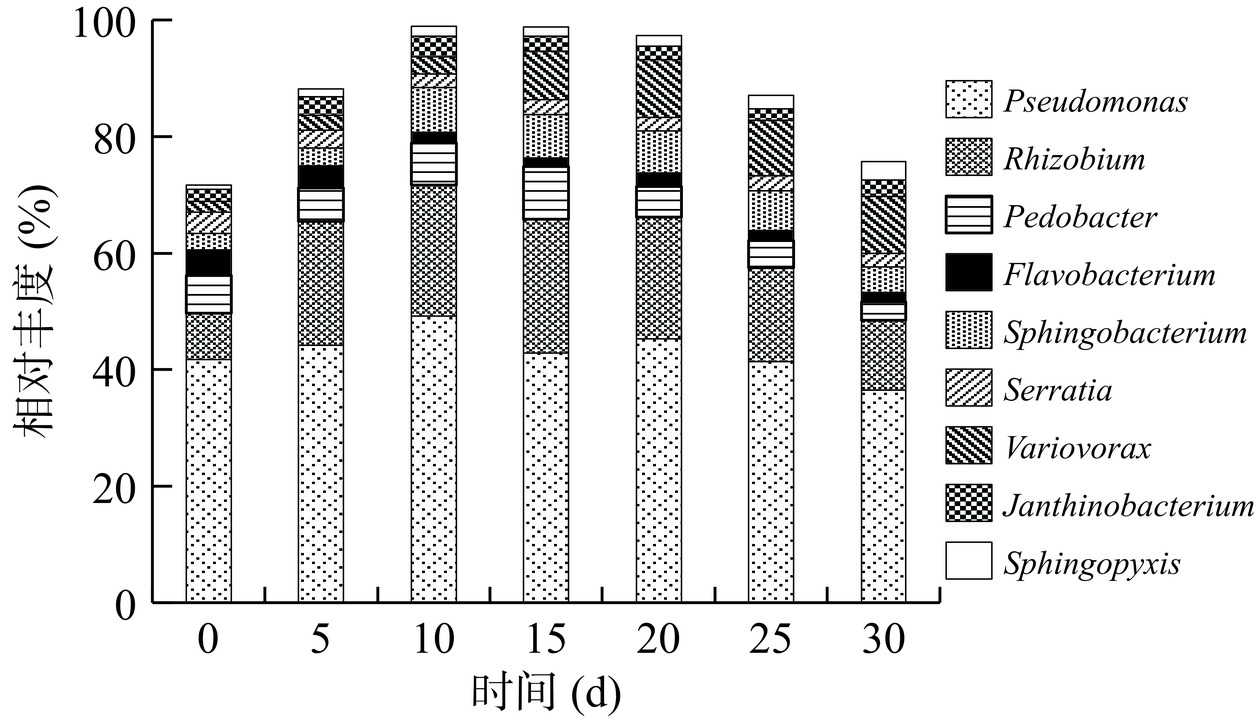
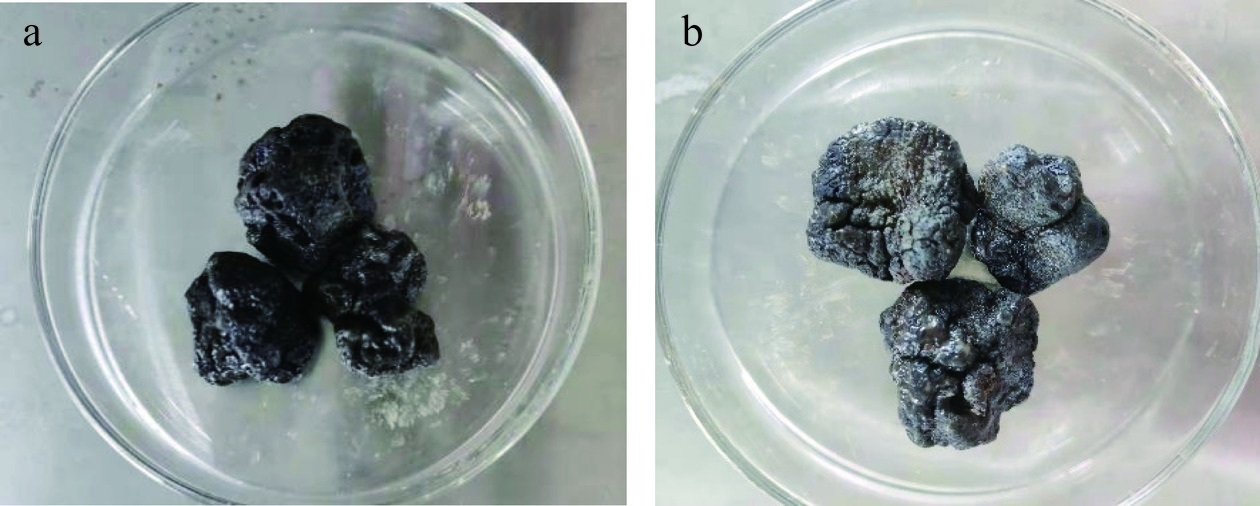
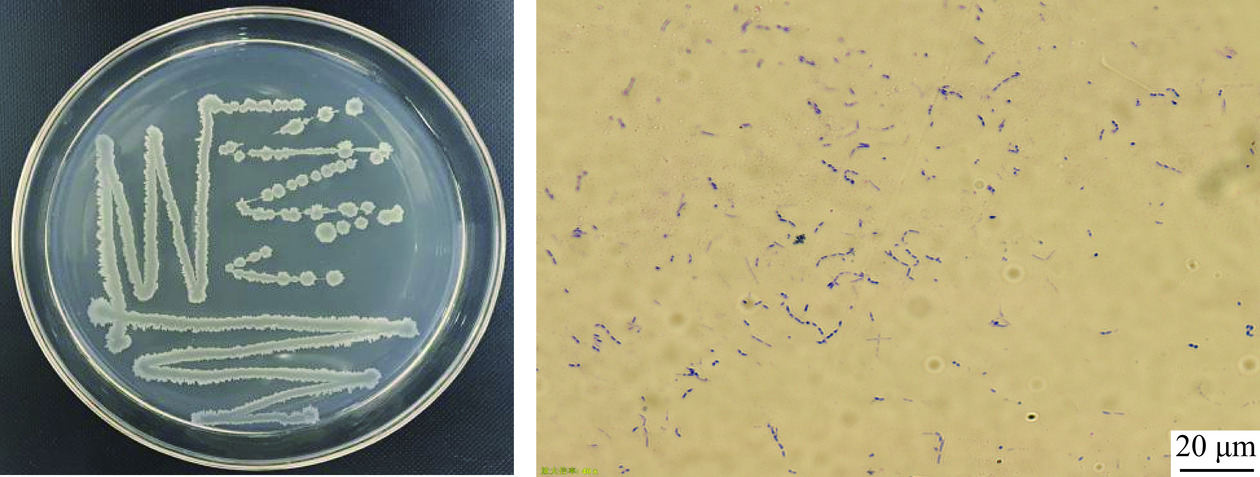
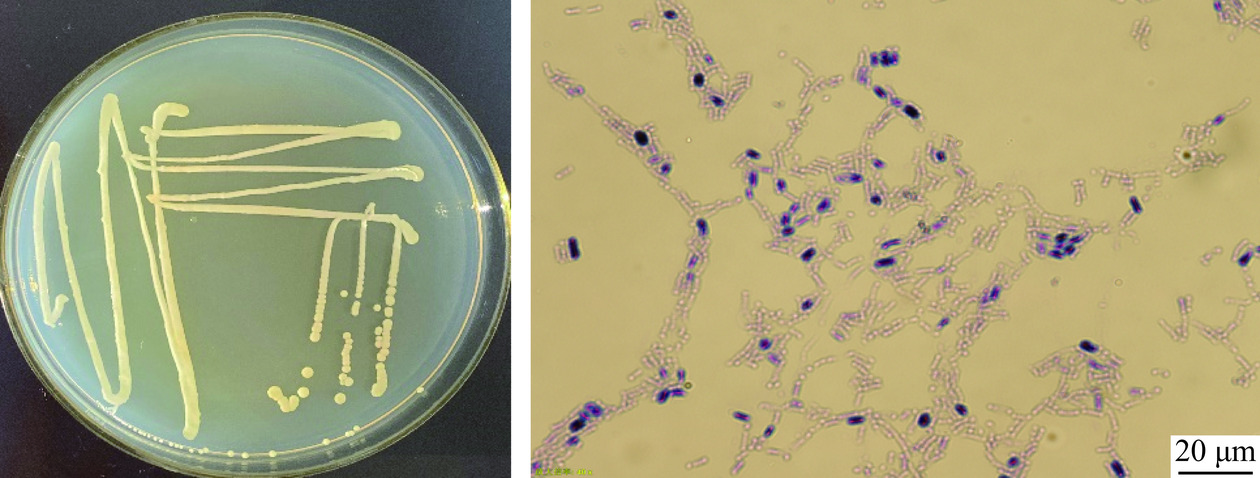
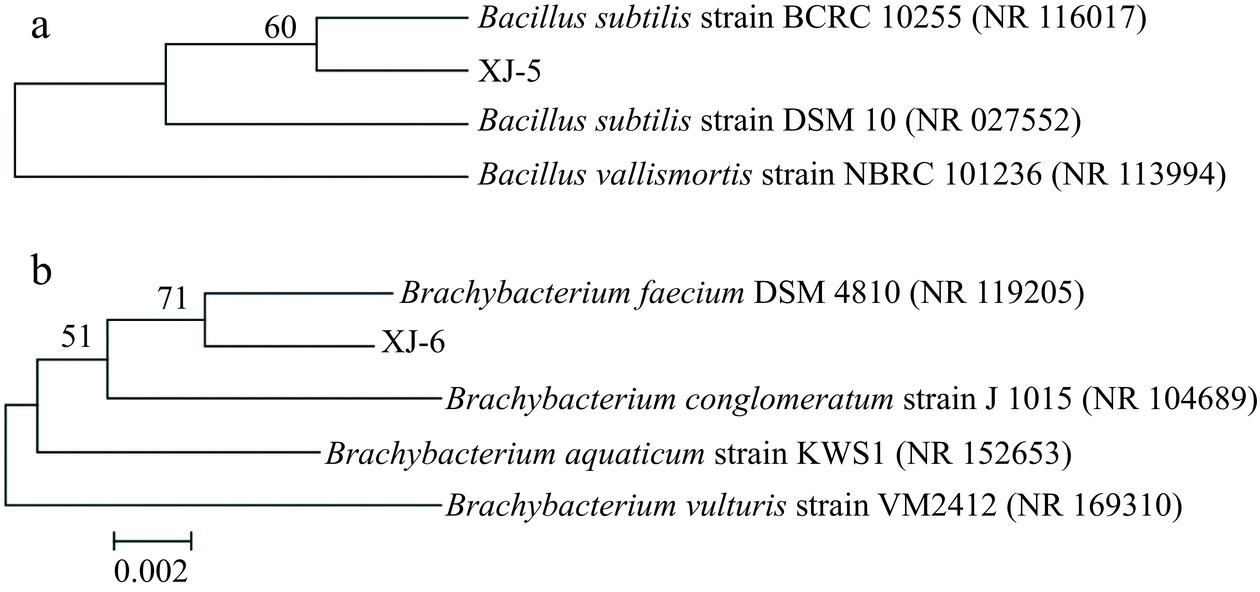
 下载:
下载:
